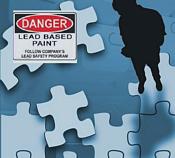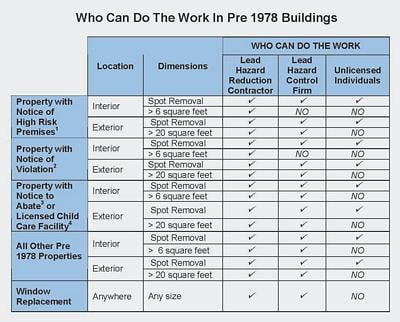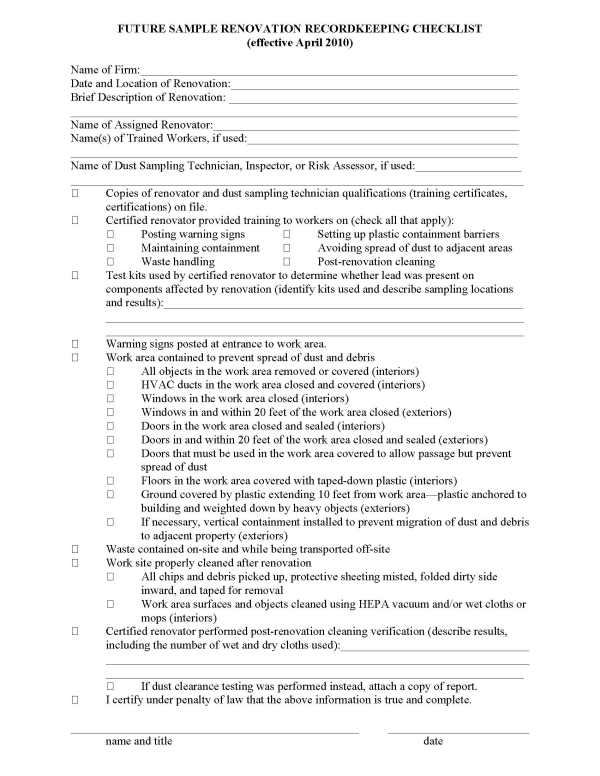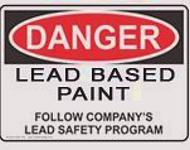Do My Sub Contractors Need To Be RRP Certified?
 There has been a lot of confusion regarding the details of the EPA RRP rule. One that seems to pop up over and over is certification requirements for sub contractors. There are two different certification considerations regarding sub contractors; firm certification and worker certification. Let’s take a look at each separately.
There has been a lot of confusion regarding the details of the EPA RRP rule. One that seems to pop up over and over is certification requirements for sub contractors. There are two different certification considerations regarding sub contractors; firm certification and worker certification. Let’s take a look at each separately.
Firm Certification for Sub Contractors:
The EPA is very clear on this. The following question and answer comes from the EPA web site’s FAQ page:
Question: My firm performs renovations covered by the RRP rule, but solely in the capacity of a subcontractor. If the general contractor is a certified firm, does my firm also have to be certified, or can we just provide the certified renovator?
EPA Answer: All firms performing, offering, or claiming to perform renovations covered by the RRP rule must be certified. In this case, both the general contractor and subcontractor must become certified firms.
 Whether working for the general contractor as a trade partner or a 1099 sales person (offers the work), sub contractors must become certified firms by apply for certification through the EPA. Ensuring that the subs they use are certified firms is particularly important for general contractors, because as part of the required documentation under the rule, the renovation checklist must include the names of all workers who participated in RRP activities on the job. If a sub contractor and his workers do work on the job and the sub’s firm is not certified, the EPA will easily be able to find both the general contractor and the sub in violation of the rule. If a general contractor knows that subs must be certified firms, hiring a non-certified firm to work on a job becomes a knowing and willful violation of the rule, which brings with it serious penalties. It’s also one easy way for a customer’s lawyer to suggest the contractor is/was negligent.
Whether working for the general contractor as a trade partner or a 1099 sales person (offers the work), sub contractors must become certified firms by apply for certification through the EPA. Ensuring that the subs they use are certified firms is particularly important for general contractors, because as part of the required documentation under the rule, the renovation checklist must include the names of all workers who participated in RRP activities on the job. If a sub contractor and his workers do work on the job and the sub’s firm is not certified, the EPA will easily be able to find both the general contractor and the sub in violation of the rule. If a general contractor knows that subs must be certified firms, hiring a non-certified firm to work on a job becomes a knowing and willful violation of the rule, which brings with it serious penalties. It’s also one easy way for a customer’s lawyer to suggest the contractor is/was negligent.
Note: Both Massachusetts and Rhode Island have this same requirement for sub contractors.
Worker Certification for Sub Contractors:
Again, the EPA is very clear on this. The following question and answer comes from the EPA web site’s FAQ page:
Question: Under the RRP Rule, can a certified renovator supervise workers of a different company, or must each firm involved in a project furnish a certified renovator?
EPA Answer: All firms performing renovations must ensure that all individuals performing renovation activities on behalf of the firm are either certified renovators or have been trained by a certified renovator. The RRP Rule does not prohibit firms from reaching agreement on which will supply the certified renovator who is responsible for ensuring compliance with the RRP Rule and who directs and trains non-certified workers. All firms remain liable for ensuring compliance with the RRP Rule.
Who is Liable, The General Contractor or the Sub?
The following question and answer provides clarification regarding the responsibility and liability of the business that is acting as the general contractor:
Question: Is the certified renovator assigned to a specific project responsible for the work practices of other contractors on the project if the certified renovator is an employee of the general contractor of the project?
EPA Answer: All firms performing renovations must ensure that all individuals performing renovation activities on behalf of the firm are either certified renovators or have been trained by a certified renovator. A firm acting as a general contractor may satisfy this requirement by hiring another certified firm that takes responsibility for ensuring that all individuals performing the renovation activities are either certified renovators or have been trained by a certified renovator. With respect to assigning a certified renovator who is responsible for any on-the-job training and regularly directing workers who are not certified renovators, a firm acting as a general contractor my satisfy this requirement by hiring another certified firm that in turn assigns a certified renovator to the job. However, this does not discharge the general contractor's liability to ensure compliance with the Renovation, Repair, and Painting Rule.
Note: The answer above also applies in Massachusetts, but does not apply in Rhode Island. In Rhode Island, the RI Lead Hazard Control Standard (Section 14.0) requires the Licensed Lead Hazard Control Firm (LHCF) to have a RI licensed Lead-Safe Remodeler/Renovator (LRM) designee as a condition of licensure.

 Looking for accurate information about the EPA RRP rule?
Looking for accurate information about the EPA RRP rule?  Rhode Island has been operating a Lead-Safe Remodeler/Renovator Program since 2001 and has licensed over 1,500 Lead-Safe Remodeler/Renovators. In 2010, the Environmental Protection Agency (EPA) created its own Lead-Safe Remodeler/Renovator Program, known as the Lead-Based Paint Renovation, Repair, and Painting Rule. Rhode Island was the first New England state granted authority by EPA to continue its state Remodeler/Renovator program.
Rhode Island has been operating a Lead-Safe Remodeler/Renovator Program since 2001 and has licensed over 1,500 Lead-Safe Remodeler/Renovators. In 2010, the Environmental Protection Agency (EPA) created its own Lead-Safe Remodeler/Renovator Program, known as the Lead-Based Paint Renovation, Repair, and Painting Rule. Rhode Island was the first New England state granted authority by EPA to continue its state Remodeler/Renovator program.  Rhode Island's RRP Rule applies to contractors, landlords, property managers, homeowners, and anyone else who disturbs painted surfaces on pre-1978 homes or child care facilities. This includes general contractors as well as special trade contractors, such as painters, plumbers, carpenters, and electricians.
Rhode Island's RRP Rule applies to contractors, landlords, property managers, homeowners, and anyone else who disturbs painted surfaces on pre-1978 homes or child care facilities. This includes general contractors as well as special trade contractors, such as painters, plumbers, carpenters, and electricians.
 When work is complete, Lead-Safe Remodeler/Renovators and their workers must:
When work is complete, Lead-Safe Remodeler/Renovators and their workers must: The RI Rule does differ in many ways from the EPA RRP Rule. Contractors who have attended the EPA Certified Renovator classes should review the regulations for differences in the RI rule before working in RI to avoid potential violations and any related penalties and or fines.
The RI Rule does differ in many ways from the EPA RRP Rule. Contractors who have attended the EPA Certified Renovator classes should review the regulations for differences in the RI rule before working in RI to avoid potential violations and any related penalties and or fines.
 PA
PA

 Note: As of July 9, 2010, Massachusetts has also taken over enforcement and administration of the RRP rule. Massachusetts has a similar log book requirement to the one described above for Rhode Island
Note: As of July 9, 2010, Massachusetts has also taken over enforcement and administration of the RRP rule. Massachusetts has a similar log book requirement to the one described above for Rhode Island According to the Q&A area of the EPA's web site, before you can offer or do work on pre-1978 homes, you must be a Certified Firm (
According to the Q&A area of the EPA's web site, before you can offer or do work on pre-1978 homes, you must be a Certified Firm (


